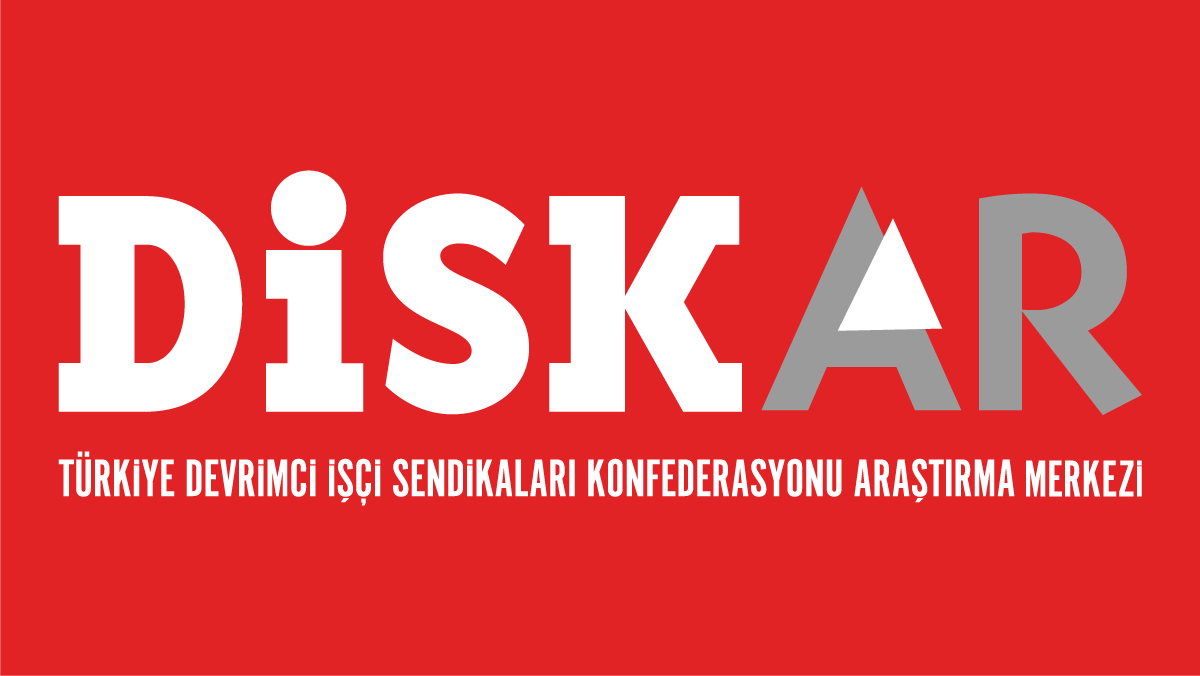Working Conditions and Flexibility in Turkey – A. Serdaroglu
Turkey is experiencing a serious change in working conditions. In this competitive environment, flexibility practices are rapidly turning into legal frameworks with the global enforcement of international financial institutions. One of the most important legal frameworks was Labor Law No. 4857, which was enacted in 2003. A structure targeting the intensification of labor is seen in this law R11; it targets more work, in less time. The concept of “when needed, workers should work intensively; when not needed, they should stay out of work life,” which is present in the current employment structure, is thus being developed in a way that reduces costs. As such, lowering the cost of dismissals is the fundamental target. Further practices that aim to intensify labor also entered into legislation with Law No. 4857, and are also on the agenda.
In today’s Turkey, flexibility practices are widespread. In the period of the crisis, especially, short term work allowance, unpaid leave and similar practices had a negative impact. Flexibility was implemented heavily during this period. Some workers forcibly accepted resignation in order to get severance pay, as they could meet their debts, rents or salaries. They were replaced by younger workers who worked for less. This resulted in a considerable decrease in real unit prices, with an increase in productivity and decrease in employment. While in 2005 the value was 100, it has now declined to 93, a decrease of seven percent. According to this, while production was returning to the pre-crisis situation, employment fell behind in terms of value. This meant that factories began to do more work with less people. Thus, the intensification of labor allows us to question the health and safety of the worker.
Another fundamental characteristic of this process is the legalization of flexible, precarious, and irregular working conditions in the labor force market, which have been encouraged by the AKP government and have been turned into standard working conditions. There has been a retreat from income security and humane work for everyone, because the efforts toward the generalization of precarious and negative working conditions, which need to be fought against, are widespread.
Minister for Labor and Social Security Faruk R18;elik stated at the 21st Annual General Assembly of TŸrk-Üß that “Working hours are at 12 per day, there is no leave, no right to organize, no reparation. There is a tendency similar to slavery, and I am saying this as Minister of Labor. This issue is on our agenda. It is not going to be me only who will decide on the rights of subcontracted workers, from their working hours to their right to organize; it will be us all together who will determine that. There will definitely be regulations on this.” R18;elik then admitted that there were currently 426,000 subcontracted workers in the public sector. In other words, the state R11; which is said to struggle with all the drawbacks in the labor market R11; employs one out of every two workers under slavery conditions and in conditions where the Labor Law is not even applied.
Apparently, the AKP government R11; which approves such treatment toward public sector workers R11; aims to preserve, maintain and disseminate subcontracting, instead of abolishing it. However, it is a human being that is being seen as a cost factor, whether in flexibility calculations or in the subcontracting practices that are a form of flexibility. In a country like Turkey, where there is widespread insecurity and UNION rights and workers’ rights are violated on a daily basis, disseminating flexibility practices that are seen in Northern European countries R11; where there is social security and high levels of income R11; means butchering the labor market in Turkey. It means greediness. It means disregarding human dignity.
Flexible working conditions are not the solution for unemployment, as is often argued. It is not correct to say that a model targeting more work with less people, justifies the intensification of labor, and increases exploitation, is a solution to unemployment. For example, the number of “secret unemployed” R11; a term used for workers who have worked for only an hour in three months R11; will increase. The ultimate goal is the “reduction” of unemployment superficially under this category. But there is no solution here. What is happening at the moment is not a fight with unemployment, but a covering up and hiding of the real unemployment figures. Full-time personnel in Turkey are working more than 12 hours above the European average, and have the right to take paid leave six working days less than the country that has the lowest level of paid leave. If they want to find a solution to unemployment, first they need to regulate working hours. The priority of labor conditions in Turkey should be the occupational accidents, as well as the intensive, irregular and precarious working conditions.
Another crisis in working conditions is the level of UNION rights. The Law of Collective Labour Relations, which is being awaited in parliament, is restructuring UNION rights with the extortion of profit games. It is the same government that imposed a general ban on strikes in the aviation sector, which had previously never been seen before in any part of the world.





